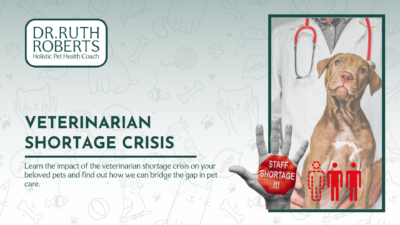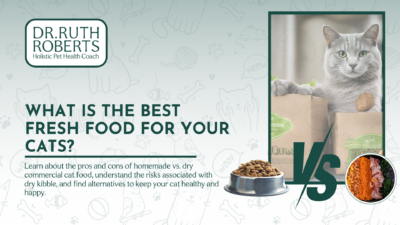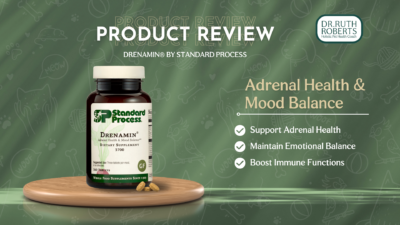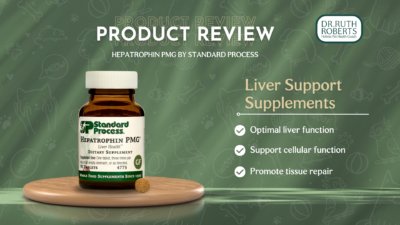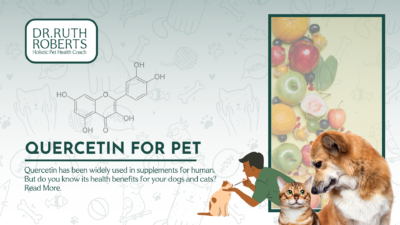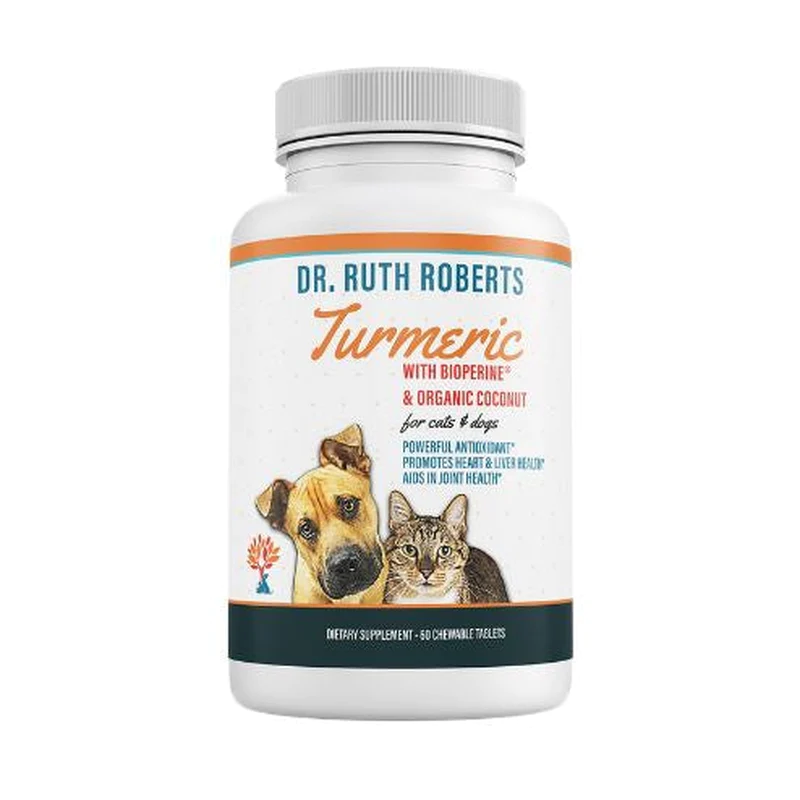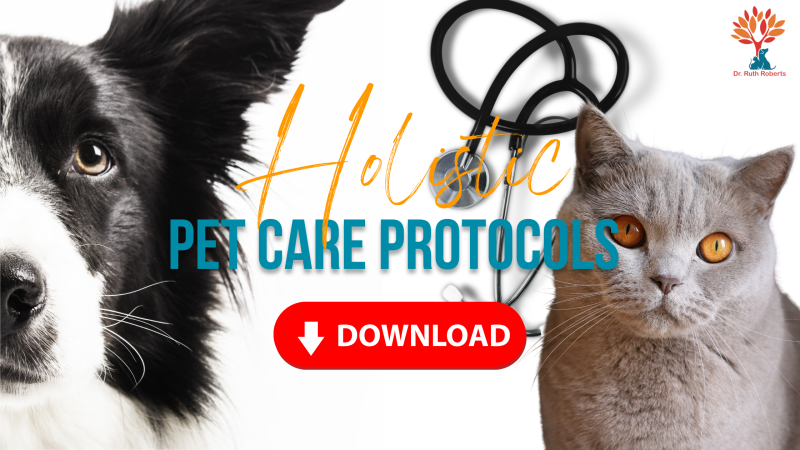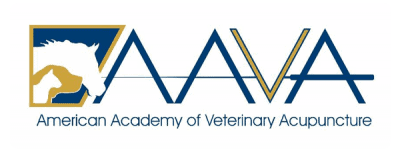The Beginner's Guide to Adding Supplements to Your Pet's Diet

Being a pet parent is as hard as raising children, they may not be related to us by flesh and blood, but we all love and cherish our pets like they’re our children all the same. Pet parenting presents different sets of challenges, but with the right techniques and strategies, you can have the happiest and healthiest pet on the block. We all want to provide them the best and only the best pet supplements.
More and more pet parents are now more concerned about their pet’s wellness than ever. One of the most common means of supporting dogs and cats is by having pet supplements alongside their diet.
We’re now paying attention to what our pet eats, we want them to feel loved and comfortable, and we’re constantly looking for new ways to support their daily needs the natural way. But, like with anything else we’re putting in our pet’s bodies, we, the pet parents always wanted to be cautious about what we give, and thinking that are we on the right path to giving them the nutrients they needed?
As a vet with 30 years of experience in the field, I have continually get asked these common questions by my patients.
- Do pets need supplements?
- Are pet vitamins safe?
- Do I need to check with a professional before giving my pet vitamins?
- What’s the best multivitamin for dogs?
- Can I give my dog a multivitamin?
- What’s my recommended protocol for every pet?
- What is the best supplement for older dogs?

Do pets need supplements?
In this article, I will be sharing a lot of great information about pet supplements and what supplements I recommend to my patients.
The importance of giving our pets a healthy diet and pet supplements became very clear to me. I came to wonder why is it that we only think of our health when it has already been damaged? Why do my clients only reach out to vet professionals when their pets are sick, or it’s already too late?
I then came to realize that in order for our pets to meet their bodies’ nutritional demands, they needed real food. Paying close attention to what our pets eat, to what fuels their body, is the first step in preventative care and maintaining good health. Once I realized this in its entirety, I was horrified by the food I’d been feeding my own pets and the poor quality of pet supplements I have been recommending to my clients. Food from the bag or can is just not enough to keep our pets healthy at every stage of their life.
As a pet parent myself, I am very picky when it comes to choosing which pet vitamin to give my pets. I constantly look for natural supplements for dogs and cats because I want to make sure I am supporting them in a holistic way.
I was asked, why do we need to give supplements If we are giving them a complete and balanced diet already? The food we grow is simply not as nutritious as it used to be. Corporate farming practices deplete the soil of trace nutrients. Some years ago, a study showed you would need to eat 40 servings of spinach to get the nutrients present in one bowl of spinach grown in the ’40s.
Are pet vitamins safe?
Just like us, cats and dogs also have different supplement needs. This depends entirely on their weight, age, existing health concerns, lifestyle, and the amount and quality of food that they are given. These all can have a huge effect on what pet supplements a cat and dog may benefit from. Too many pet supplements, minerals, and pet vitamins can be as dangerous as too little. So you need an expert guide and research as to which dog supplements powder, liquid dog vitamins, and natural supplements for dogs to choose from.
Moreover, If your pets are already eating a balanced diet and receive excess portions of some vitamins and minerals, this could also be harmful.
Too much calcium can cause skeletal problems, especially in large-breed puppies; too much vitamin A can harm blood vessels and cause dehydration and joint pain. Excess vitamin D can prompt a dog to stop eating, harm bones, and cause muscles to atrophy.
Learn more from my Holistic Health Protocols. Sign up here!
Do I need to check with a professional before giving my pet vitamins?
Absolutely! Symptoms that seem to look like arthritis, such as a dog with a weak back end, could probably be a neurological problem. A poor coat could indicate skin, metabolic or hormonal problems. And there are a lot more signs that we need to look for and I have discussed these neurological conditions in one of my Youtube videos.
Some natural ingredients that can be found in some supplements, such as herbals and mushrooms may cause a reaction with other medications that your pet is taking. Your vet can also assess whether you need natural supplements for your pets.
What's the best multivitamin for dogs?
I’d love to tell you all about The Holistic Total body support which I had produced. I think it’s the best option but there are many of them out there that are complete and balanced. What I would suggest doing is to compare the ingredients you see on the label and the nutritional profile of your current profile to what’s in Holistic Total Body Support and then you can use that to make a determination.
Now the flip side is that holistic total body support does contain some beef and pork protein-based, glandular. They can create some issues allergy or sensitivity wise for dogs. These are glandular materials that contain beef and pork, most of which will not create any issues even for animals that have beef allergies or pork allergies. The other thing is too is the filler in holistic total body support is silicon dioxide, an inert substance that can support stronger bones, skin, and hair.
Glandular supplements can be a vital component of a fully balanced diet. Many essential nutrients cannot be obtained from plants and meats alone. A high-quality gland-based multivitamin can fill in all of the missing holes in your pet’s diet, and support the endocrine system with essential raw materials to keep it working efficiently.
High-quality glandular supplements and multivitamins are tough to come by, without the help of a doctor or veterinarian. It’s so important to know that the components of the product have been procured from a safe and reputable source. This is why I am delighted to add the Standard Process Family of supplements to your store. Now you can find and easily purchase Canine Enteric support, Feline renal support, and the entire Standard Process Veterinary line.
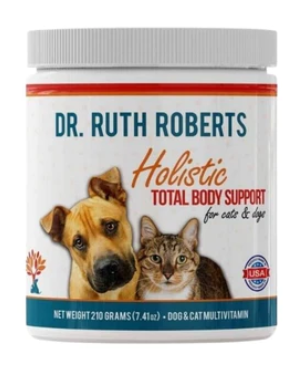
Can I give my dog a multivitamin?
Definitely, That’s why I so strongly encourage using a multivitamin for both cats and dogs, regardless of what your pet’s eating. Because the quality of the vitamins deteriorates both during the processing of the food and during storage as well.
I have often said you can’t out pill a bad diet, so remember that: start with high quality, easy to digest, and absorb food, made from fresh ingredients, like The Original CrockPet Diet. Supplements are just that, meant to supplement the diet, not be the main source of nutrition. It’s kind of like trying to live off of Cheetos and pizza, then taking a multivitamin to round out your nutrition. You simply won’t have optimal health that way.
What’s my recommended protocol for every pet?
In fact, my top 4 Supplement recommendations for every pet are:
- Holistic Total Body Support
- Omega 3 Fatty acids. Fatty acids can help coats look better, but more importantly, Fish oil supplements also can reduce inflammation, according to a study published in the American Journal of Veterinary Research.
- Probiotics. With all the research coming out about how the microbiome impacts our health, this is a no-brainer, and
- Lastly, Joint support. Arthritis pain is what limits the quality of life and length of life of so many pets.
What are omega-3 and omega-6 fatty acids?
Omega-3s and omega-6s are fatty acids that are responsible for supporting a number of critical body systems. However, omega-6s are often consumed in higher amounts than omega-3s. Omega-3s are commonly associated with fish consumption, but modern aquaculture produces fish that are lower in omega-3s than wild fish. This has the potential to create nutritional gaps, which can be improved through supplementation.
Why are omega-3 and omega-6 fatty acids important for cats and dogs?
Studies have shown that consuming a balanced amount of Omega-6/Omega-3 fatty acids (also known as a lower Omega-6/Omega-3 ratio) can provide a number of health benefits. However, many dogs and cats tend to consume diets that are higher in omega-6 fatty acids. This is partly because grains and oils rich in omega-6s have been largely used in feed for farm animals, which has led to the production of meat and eggs rich in omega-6s and poor in omega-3s. In addition, modern aquaculture produces fish that contain lower levels of omega-3s than wild fish.
Omega 3s and EFA are great for skin problems or flaky skin. “There are three different common Omega 3 fatty acids for dogs, alpha-linolenic acid (ALA), docosahexaenoic acid (DHA), and eicosapentaenoic acid (EPA),” says Dr. Ochoa. Omega 3s are a common fatty acid supplement that’s becoming very popular to use in dogs. This supplement has been proven to help with allergies, skin disease, heart and kidney disease, lymphoma, and much more. This is a great supplement to add to your pet’s diet.
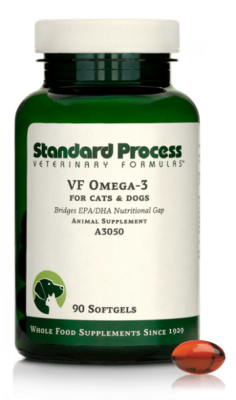
What about Probiotics?
Probiotics are the good bacteria that are naturally found in healthy pets’ intestinal tract, in supplement form for your dog or cat to take.
Probiotics can be ingested as a paste, powder, or capsule. You can easily put this on your dog’s food to help restore the natural gastrointestinal microflora in your dog’s gut. The “good” stuff is what helps your body function well, like the flora found in your gut. These microorganisms work hard, helping to break down food and keep things moving. Matter of fact, your intestines contain more bacteria than there are cells in the rest of your body. Take a moment to process that.
A probiotic supplement like Fidospore contains high amounts of these “good” bacteria. Fidospore is the first probiotic supplement clinically shown to support digestive health and reduce leaky gut in dogs. The supplement, combined with the bacteria already present in your pet’s body, creates a more favorable ratio and balance of those bacteria.
Adding these healthy microorganisms to your pet’s diet promotes better health, healing, and happiness. Why do I recommend Fidospore? It reduces inflammation, diarrhea, and vomiting in as little as 30 days.
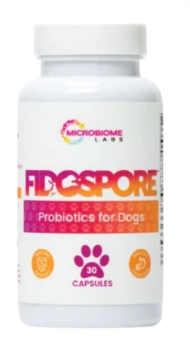
Joint Pain and Arthritis
For dogs with any joint or ligament injury, certain supplements can help.
Glucosamine will help with inflammation of the joints.
What does Glucosamine do? Well, it supports the synthesis of collagen, a key structural protein in tendons, cartilage, and ligaments. Using a joint supplement like glucosamine or chondroitin sulfate, those two components are anti-inflammatory and there are tons of different options out there. They are often chicken-based, which can be a problem for pets with chicken sensitivity.
I have a great supplement that is proven to be safe and effective for pets who needs help with arthritis. Arthri-Pawz offers ideal nutritional support for joints, providing them with the nutrition they need to rid fluid that results in swelling, repair, stay lubricated, move freely, and function at their best.
Why do I recommend this joint formula over all others? For starters, it’s hypoallergenic. Because this is based on shellfish, pets that have allergies to chicken or beef can take this. It provides the essential building blocks and nutrients for joint repair. Arthri-Pawz reduces free radicals and supports a healthy inflammatory response which may help lessen wear and tear on the joints and between spinal vertebrae. It reduces the potential for the body to attack its own joint tissue, a known cause of the second cruciate rupture in dogs.
If your dog is in a lot of pain, there are new studies that point to CBD products that can also help with pain associated with arthritis.
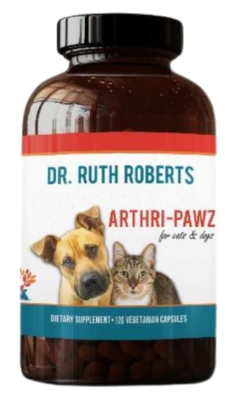
What is the best pet supplement for older dogs?
In addition to my top 4 recommendations above, We have to start worrying about combatting chronic disease in our older pets. This can show up as Kidney failure, Cognitive dysfunction, liver disease, and many more.
Studies have shown that medicinal mushrooms provide a source of polysaccharides, including beta-glucans. Beta-glucans have been reported to have antioxidant properties, reduce the spread of cancer, and may support blood glucose and lipid metabolism.
My all-new Myco-Pawz has this Blend of 8 standardized mushrooms, including reishi, Chaga, lion’s mane, cordyceps, maitake, shiitake, Agaricus, and turkey tail.
Myco-Pawz (8 Blend Mushroom Supplement) | Immune System Support
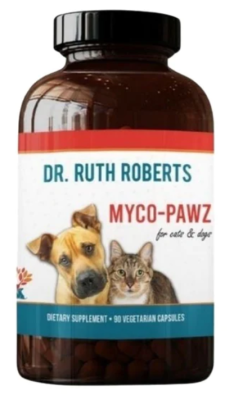
Reishi mushrooms have been shown to possess immune-supportive properties and they also support normal blood glucose metabolism and liver health. Chaga mushrooms help support a normal immune response. Chaga is rich in beta-glucans and polyphenols can support Many organs and the plant-based antioxidants support reduction of free radical damage.
Lion’s mane mushrooms support neurologic system issues like cognitive impairment, degenerative nerve conditions, nerve injuries, or stroke. It may help support healthy brain function and memory. Lion’s mane mushrooms may also support a normal response to stress.
Cordyceps mushrooms may promote exercise performance and help reduce fatigue. Maitake mushrooms may support immune activity, especially when combined with shiitake and reishi mushrooms. Shiitake mushrooms may possess immune-supportive, antioxidant properties and a normal allergic response.
Turkey Tail mushrooms support a normal immune response, as well as liver and gut function.
One of the supplements that I suggest for dogs that have dementia-like symptoms or sundowner syndrome is alpha-lipoic acid. Alpha-lipoic acid has strong antioxidant properties, which may reduce inflammation and skin aging, promote healthy nerve function, lower heart disease risk factors, and slow the progression of memory loss disorders. Because alpha-lipoic acid is a powerful antioxidant, studies have examined its ability to slow the progression of disorders characterized by memory loss. Learn more.
Standard Process supplements are whole food-based supplements and they provide safe, effective, and targeted nutritional support for pets.
For our canine friends, I recommend using Canine Hepatic Support:
Canine Hepatic Support offers support to the liver. The Liver is a complex organ that interacts with most organs in the body, including the intestinal tract, cardiovascular system, kidneys, and autonomic nervous system. Older dogs, they needed this type of supplement as we know their body functions decrease as they ages.
Canine Hepatic Support is formulated to support dogs’ liver metabolism & hepatic circulation and is recommended for canine patients with increased metabolic demand.
It is also formulated to support:
- Bile production and flow
- Hepatic immune function
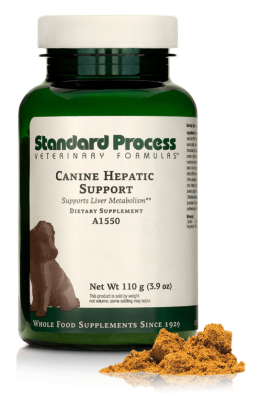
For our feline friends, here’s Feline Hepatic Support.
Feline Hepatic Support is formulated to support:
- Liver metabolism
- Hepatic circulation, bile production, and flow
- Hepatic immune function
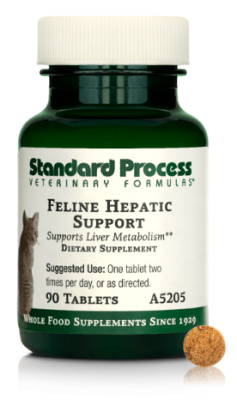
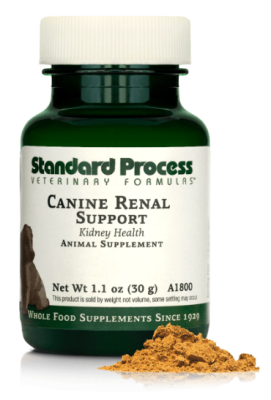
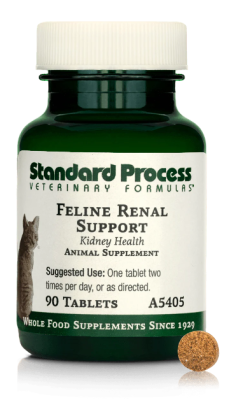
- Facilitates support and natural rehabilitation of the kidneys
- Provides balanced cellular nutrition for all aspects of urinary system function
I have been recommending these supplements to my patients and you can see more of my condition-specific collections here.
Supplements are great for many different problems. But, it is important to not overwhelm your pet with too many. I have seen many clients put their pets on 20 or 30 different products, which makes it hard to know what is working, and what is not. If you need help deciding what to use for your pet’s condition and want a bespoke program for your pet, contact us about a consultation.

